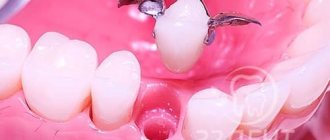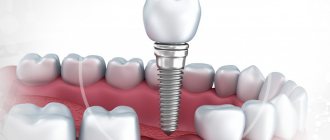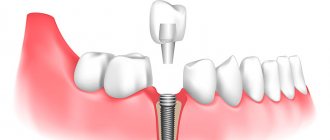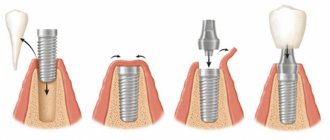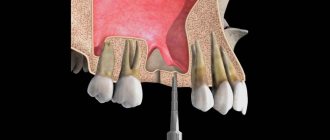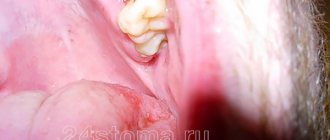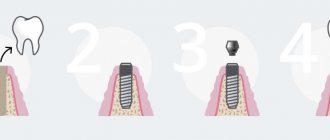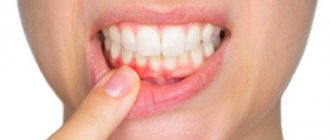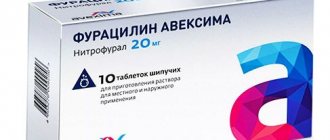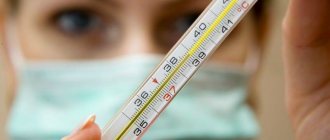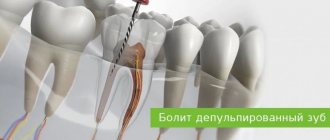The procedure of removing a tooth or tooth root is a common operation in dental surgery. It must be performed by a dentist-surgeon. During tooth extraction, tissue and blood vessels are damaged, leaving a wound filled with thickening blood.
To ensure healing proceeds quickly and there are no complications, you should follow simple recommendations after tooth extraction:
- remove the gauze pad no earlier than 20 minutes after the procedure;
- do not eat for 2 hours;
- Do not eat hot food during the next day;
- do not rinse your mouth;
- do not eat food that is harmful to the oral cavity;
- do not examine the wound using improvised means;
- do not apply compresses;
- Do not overcool, do not overheat, and do not undergo physical exertion for several days.
When following the recommendations, a lot of questions still arise. Let's look at the most common ones.
Content:
- A tooth has been removed: can you or can’t smoke?
- Why smoking after removal is undesirable
- Is it possible to smoke after tooth extraction if there are stitches on the gums?
- Smoking and anesthesia are an undesirable combination
- Useful information about the effect of nicotine on the mucous membranes of the oral cavity
- How to speed up the healing of a hole
A person who has just had a tooth removed is usually nervous. This is understandable - he has suffered stress and wants to relax. Smokers often use cigarettes to calm down, but the question arises: when can you smoke after dental surgery? We suggest you look into it.
When is the best time to remove a wisdom tooth?
It is better to remove a wisdom tooth when it does not hurt!
Are you faced with the fact that the doctor recommended that you remove a wisdom tooth on the upper or lower jaw? Most likely there are certain indications for this.
Any surgical intervention during a period of acute inflammatory process occurs and is tolerated more difficult than during a period of relative rest. The healing period in such cases is more painful and longer.
Therefore, do not wait until the tooth hurts (IT WILL DEFINITELY HURT).
If you doubt or don’t trust a doctor, consult another one; if you have doubts, consult a third one.
A tooth has been removed: can you or can’t smoke?
Dental surgeons prohibit smoking during the first two to three hours after extraction. This short period is relevant if:
- the operation was not very complicated;
- the bleeding has stopped completely;
- after removing the gauze swab, blood did not begin to flow again;
- a dense blood clot has managed to form, isolating the wound in the gum.
In severe cases, smoking after tooth extraction will have to be postponed for several days - the exact time period will be determined by the doctor. This is due to the fact that nicotine contained in cigarette smoke irritates the edges of the inflamed hole and causes spasm of blood vessels. Because of this, regeneration processes slow down and dangerous complications can develop.
Bottom line
Cigarette smoke provokes the development of various pathological conditions that prevent the rapid healing of damaged tissues. Therefore, after removing a molar, you should not delay for several hours, and when suturing the gums - for several days. Smoke contains many toxic substances that enter the damaged shell and cause harm.
Also, tobacco smoke dries out the mucous membrane, which poses a danger to the blood cell inside the socket - it is responsible for restoring tissue integrity and preventing the penetration of microbes.
Tightening stretches the facial muscles, which can cause sutures to come apart and increase blood flow. Only strict adherence to the dentist’s advice will help the tissues heal faster, then you can smoke as usual.
Sources used:
- Oral hygiene. Short course / O.A. Kilafyan. - M.: Phoenix, 2014.
- Basics of prevention of dental diseases. Textbook / Yu.M. Maksimovsky, O.V. Saginah. - M.: Vlados-Press, 2005.
- Diagnosis and prevention of dental diseases / Muravyannikova Zhanna Gavrilovna. - M.: Phoenix, 2013.
Why smoking after removal is undesirable
If you start smoking after leaving the dentist's office, you may experience dry socket problems. This means that the blood clot formed to protect the wound from the penetration of pathogens will collapse. Then the tissues will be left without a natural barrier. When smoking further cigarettes and eating food, irritating substances will enter the hole. In this case, there is no hope for quick healing.
The inflammatory process that has developed due to dry socket manifests itself:
- pain at the location of the torn unit;
- increased body temperature;
- accumulation of purulent masses in the wound;
- foul breath.
There is no point in hoping that the situation will normalize on its own. If you have a dry socket, you should visit your dental surgeon again as soon as possible.
Alcohol before surgery - possible consequences
Some patients try to drown out toothache and stress by drinking alcohol. But it is prohibited to drink alcohol before dental procedures.
Reasons for the ban:
1. Ethanol reduces the effectiveness of anesthetics. The doctor will be forced to increase the dose, which can lead to an overdose.
2. Painkillers have a large number of side effects. This is nausea, vomiting, vertigo. Alcoholic drinks increase unpleasant symptoms.
3. Ethanol reduces blood clotting. This is fraught with the development of bleeding during and after surgery.
Alcohol consumption increases the risk of complications. And the dentist may refuse to remove a tooth from an intoxicated patient until he has completely sobered up.
Possible complications if you ignore the ban
The more alcohol the patient took, the higher the risk of complications. Frequent ones are:
- ineffectiveness or increased side effects of anesthetics;
- development of bleeding;
- increased risk of allergies to medications used by the doctor;
- increased blood pressure, hypertensive crisis;
- heart attack;
- increased load on the kidneys, liver and, as a result, inflammatory processes in the biliary and urinary systems;
- long-term healing of the wound surface.
Smoking and anesthesia are an undesirable combination
Doctors insist that patients do not smoke for the next two to three hours after extraction for good reason. Anesthetics used during dental surgery make the tissue completely insensitive and reduce the activity of some muscles and can change the breathing rate. It is very important to wait until their effect ends.
Nicotine and carbon monoxide entering the oral cavity during smoking a cigarette cause spasm of blood vessels and reduce oxygen saturation in the blood. The combination of all these factors leads to a situation where the tissues of the mouth do not receive enough oxygen, which is important for their restoration.
Electronic cigarettes after sinus lifting and bone grafting
Vaping (vaping) using electronic cigarettes is also prohibited after sinus lift surgery. Vaping has the same negative aspects as traditional smoking. The patient's oral mucosa dries out, blood vessels spasm, and general health worsens. No sane doctor would allow smoking or vaping after surgery.
The patient may smoke after a sinus lift only at his own risk. However, it is worth weighing the pros and cons before lighting a cigarette. The risks are quite impressive:
- Lost time (implantation is a rather long process) due to non-compliance with recommendations.
- Losing money (sinus lift is an expensive operation), and if the bone tissue does not heal due to smoking, you will have to repeat the surgery.
- Losing your own health. When a patient comes for an implant consultation, their main goal is healthy teeth. However, the smile of a heavy smoker will never be healthy.
Therefore, you should think about whether you really want to sacrifice money, time and your health just for cigarettes? Perhaps the recovery period after a sinus lift is your ideal time to quit your addiction forever and significantly improve your quality of life and health.
Useful information about the effect of nicotine on the mucous membranes of the oral cavity
The mucous membranes of the human oral cavity are lined with very delicate and easily vulnerable epithelium. With the systematic use of tobacco products, nicotine and toxic tars damage tissue. The situation is aggravated by the negative impact of elevated temperature when inhaling cigarette smoke.
This is why smokers are often diagnosed with gingivitis and periodontitis. The components present in the smoke change the ligamentous apparatus of the tooth. The gums become inflamed. In the absence of adequate treatment and the persistence of a bad habit, the inflammatory process progresses. Then the unit becomes mobile.
Compounds present in cigarette smoke spasm peripheral blood vessels, disrupt tissue trophism and increase inflammation. Most often, the disease occurs without acute pain and bleeding, so the smoker is in no hurry to see a dentist. But, if you go to the doctor late, you can lose your tooth ahead of time.
Nutrition after implantation: what we eat and when, and what we refuse
The strictest rules apply to the first day after the procedure. At this time, swelling of the gums and cheeks, slight bleeding, pain and discomfort occurs. In the first few hours after surgery, soft tissue is especially vulnerable to infection, which can lead to more serious complications.
Therefore, in the first 2 hours after implantation, you should absolutely not eat or drink. Violation of this prohibition can lead to suture dehiscence or infection, not to mention increased pain. In addition, it is important to wait until the anesthesia wears off and sensitivity returns, so as not to accidentally bite your tongue, lip or cheek.
If implantation took place under general anesthesia, the first meal is allowed no earlier than 4 hours later. On the first day, you can only take liquid food - broth or puree, and avoid any chewing load. You need to drink as much clean water as possible.
Then you can switch to soft foods - pureed soups, porridges, soft boiled or stewed vegetables. This diet should be maintained for the next two to three weeks. But solid foods, especially crackers, chips, and nuts, should absolutely not be consumed.
For 2-3 weeks after the procedure, you should not eat hot, cold, spicy, too salty, or sour foods. Only warm foods are allowed, not too viscous so that they do not stick to the teeth. But spices and herbs should be avoided, as well as alcoholic beverages.
And most importantly, for the first time you should not chew on the side on which the implantation was placed, so as not to cause an infection and not to load the implanted pin ahead of time.
How to speed up the healing of a hole
Dentists always give the patient individual recommendations that must be followed. But there are general rules that apply to all patients:
- Do not smoke for at least two to three hours.
- Promptly remove the tampon soaked in antiseptic from the postoperative wound. If you forget to do this, the fabric will become a suitable breeding ground for bacteria.
- Do not touch the blood clot covering the wound. It cannot be picked or felt. The speed of recovery directly depends on the state of the clot.
- When rinsing, do not make intense movements that will help wash out the clot. You just need to put the medicinal solution in your mouth and carefully hold it on the side of the extracted tooth.
- Do not apply medications to the affected area that have not been prescribed by a doctor. Such amateur activities can lead to dangerous complications.
- In the first three days after extraction, do not take a hot bath or steam in a bathhouse or sauna.
- Do not eat until the anesthesia wears off. Otherwise, you may bite the tissue of your cheek or lip.
- Take only those medications prescribed by your dentist. Sometimes doctors decide to prescribe antibiotics - they must be taken strictly according to the specified regimen.
How the regeneration process will proceed depends not only on the actions of the dental surgeon, but also on the behavior of the patient. Remember this!
Dentists' recommendations
While there are no particular problems with non-smoking patients, many dental and orthodontic procedures are not available to smokers. Smokers should not undergo surgery to increase jaw bone tissue, apply sutures to soft tissue, or implant implants. During tightening, the seams may come apart and the implant may fall out. But still, if you take precautions and strictly follow the recommendations of dentists, you can achieve results in smokers.
Doctors' advice
- The cotton wool with antiseptic can be removed 20 minutes after tooth resection; if this is not done, bacteria will begin to multiply;
- the blood ball in the tooth socket cannot be spat out or removed in any other way - it protects the wound from the external unfavorable environment and activates tissue regeneration;
- You should rinse your mouth with antiseptics very carefully so as not to accidentally remove the protective ball from the hole;
- It is better to replace the usual rinsing of the mouth with solutions with baths - keep the solution in the mouth and then carefully spit it out;
- if the doctor puts a medicinal substance in the hole, it cannot be removed without permission;
- the first oral hygiene can be performed only the day after resection;
- if the doctor has prescribed a course of antibiotics, it should be completed;
- In case of severe pain, it is recommended to take a painkiller; there is no need to endure discomfort in the gums.
If the removal operation is successful, the first puff can be done after a few hours. Distract yourself from thinking about a cigarette for at least 2 hours.
If the bleeding has not stopped after 2 hours, you can’t think about a cigarette. Tightening may increase bleeding, in which case you will have to seek additional medical help.
What is prohibited
- Clean and rinse the mouth 24 hours after resection;
- steam in a sauna, take a hot bath, sunbathe in a solarium - increasing degrees will increase bleeding from the wound;
- exercise in a fitness club, gym, sports section - until the wound heals and the stitches dissolve;
- when stitches are applied, you can’t not only tighten them, but even smile and open your mouth wide - the stitches will quickly come apart;
- you can have a snack after stress only after 2-3 hours; drinking liquids is also not recommended (or carefully through a straw);
- Alcohol is strictly prohibited - it greatly thins the blood, the wound will begin to bleed;
- You can’t drive a car on this day, it’s better to call a taxi.
For some time you will have to give up the usual spicy, over-salted food, very hot/cold dishes. This means not eating ice cream, drinking cold fruit juice or freshly brewed coffee. Pickled mushrooms and pickled cucumbers are also temporarily prohibited; it is advisable to avoid smoked meats.
You also need to give up rough foods: crackers, hard fruits, vegetables. You should not chew carrots and radishes for several days in a row. Food products should be soft, not over-salted or over-peppered. You will have to stay on a gentle diet for several days until the tissues heal completely.
What do we have to do
- apply ice to the cheek if the pain overcomes - but keep such a compress for no more than ten minutes;
- warm herbal baths - they will soothe damaged tissues, relieve swelling, and eliminate pain;
- take painkillers, anti-inflammatory medications, except aspirin and analgin - they thin the blood.
If you are undergoing medication treatment, you should inform your dentist. He will adjust your medication intake. Some medications affect blood viscosity and cause bleeding, so their use should be discontinued for a while.
How does smoking generally affect the body?
Let's try to figure out what reaction cigarette smoke causes in the body. As soon as you start smoking, nicotine enters your bloodstream. Next, it provokes a huge release of adrenaline, which causes our heart rate to increase and our blood pressure begins to rise. In order for the heart to maintain increased pressure, which is unusual for our body, it must work faster. Only oxygen can contribute to this. But a person who smokes, on the contrary, receives even less oxygen. It is hemoglobin that transports our blood in the body, and if this is prevented, its deficiency appears. But it is carbon monoxide that prevents hemoglobin from performing its transporter function. Thus, it became clear to us that people who smoke experience a huge lack of oxygen, a deficiency that especially manifests itself during anesthesia.
It is now clear why people who regularly breathe cigarette smoke are at great risk of cardiovascular complications. And there is no question of smoking a cigarette after anesthesia. On the contrary, to eliminate and prevent respiratory disorders, smokers must perform breathing exercises.
Methods of teeth whitening in dentistry
There are several types of professional dental teeth whitening. Your doctor can advise you on the most effective method.
Mechanical bleaching
This method is the most accessible and simple. To clean the enamel, dental attachments are used, with the help of which plaque and stones are effectively removed. After the procedure, the doctor applies a gel to the teeth that protects the enamel.
Chemical procedure
The method is gentle. After it, the teeth become lighter by just a few shades. The gums are covered with a latex protective sheet, after which a concentrated whitening solution is applied to the teeth. The procedure will not apply if the patient has veneers, crowns or fillings.
Photobleaching
The procedure allows you to whiten your teeth by 7-8 tones. The doctor applies the whitening gel and shines a lamp on it. The procedure lasts from 15 to 45 minutes. After the procedure, the doctor applies a product with a high fluoride content to reduce tooth sensitivity.
Lifestyle: do's and don'ts after dental implantation
In general, installing implants is not a reason to give up your usual lifestyle. However, there are still a number of limitations:
- complete cessation of smoking, alcohol, coffee, sweet soda;
- refusal of sports training - cardio and strength training, active running, squats and other exercises;
- visiting a sauna, bathhouse, taking a hot bath, or prolonged exposure to heat and sun is completely prohibited;
- staying in the cold for too long;
- for the first few weeks you need to give up swimming, both in the pool and in open water;
- it is necessary to avoid drafts to prevent colds - during the rehabilitation period it is extremely undesirable to sneeze or blow your nose, this can lead to displacement of the implant.
General mobility, on the contrary, should be increased; walks in the fresh air will also benefit. On the contrary, you cannot spend a lot of time lying down.
To speed up healing, you can take vitamins and mineral complexes.
Do-it-yourself whitening
Since it is necessary to constantly visit the dentist to remove plaque, smokers are trying to find ways to whiten their teeth on their own. Methods that can be found on the Internet can be dangerous, but more often they are simply useless:
- Whitening on your own will not remove plaque between your teeth.
- It is impossible to clean the fissures and grooves in the chewing teeth with a toothbrush and improvised means.
- The gingival area of the tooth also cannot be cleaned without dental instruments.
None of the self-whitening methods will remove plaque trapped in microcracks in the enamel.
Professional dental hygiene can help a smoker. The procedure does not whiten the enamel to ideal levels, but it does remove surface pigments. Hygiene is mandatory before the whitening procedure.
